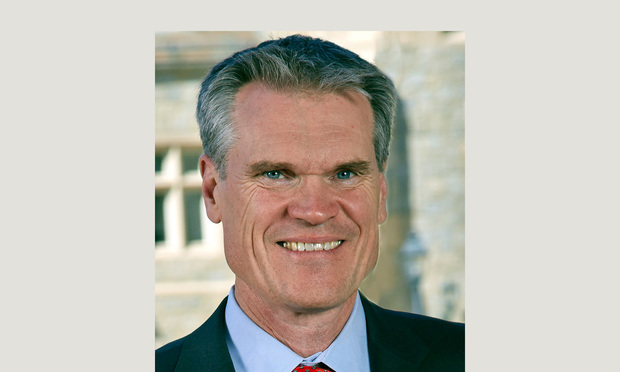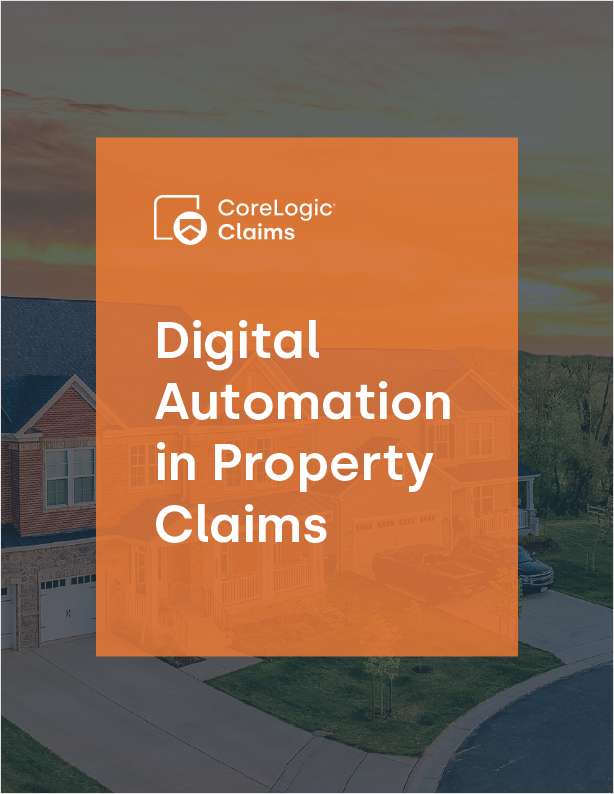UConn School of Law Dean Timothy Fisher Talks Coronavirus, Pro Bono Work and Bar Exams
UConn School of Law Dean Timothy Fisher discusses the university's plan to move all studies online starting Monday.
March 20, 2020 at 06:00 PM
7 minute read
 University of Connecticut School of Law dean Timothy Fisher. Courtesy photo
University of Connecticut School of Law dean Timothy Fisher. Courtesy photo
As students and faculty at the University of Connecticut School of Law get ready to return to classes after spring break, they will do it like so many of their peers: From home.
COVID-19 has forced law schools such as UConn's to rethink how they teach their students. There are obstacles and challenges faced with closing campus temporarily and having faculty and staff interact via online classrooms.
It's something UConn School of Law dean Timothy Fisher said brings distinct challenges for the university.
Fisher, 66, is the 17th dean of the law school. He joined the university in 2013, following 35 years in private practice. Fisher got his law degree from Columbia Law School in 1978.
Fisher, who has a long history of public service and is an advocate of promoting pro bono endeavors, recently sat down for an interview with the Connecticut Law Tribune. Those answers have been modified for length and clarity.
Connecticut Law Tribune: Like law schools in most of the country, UConn announced all remaining classes this semester will be taught online due to COVID-19. What are the biggest obstacles or challenges the law school faces in implementing these new guidelines?
Timothy Fisher: UConn has robust IT systems and online classroom software, so we are optimistic we can make this work for our students.
We will face three main challenges in converting to remote teaching for the semester. First, readying our faculty to work with the software when spring break ends Monday. Second, adjusting our classroom experience to this new way of communicating. Third will be maintaining a sense of community when we no longer have the in-person contact we are used to.
I am proud of our community's progress so far, after just a few days, toward achieving all of these goals, and am confident that we and our students will experience a new form of learning through this crisis.
I expect we will not only achieve our intended core legal education, but also learn deep lessons about resiliency and creativity in the face of unprecedented circumstances.
CLT: A look at the law school's academic and events calendar shows that fears of the virus has led to cancellation of many events through spring. How has that affected morale?
Fisher: Above all, we are disappointed over the loss of our traditional commencement ceremony.
We are actively exploring alternatives, and will develop the options that we can, while assuring that every graduating student obtains the formal degree award needed for bar admission and employment.
Beyond commencement, we are exploring how to continue student events without in-person gatherings, and continue the interpersonal relations we have with each other and maintain the supportive environment we have always enjoyed. For example, our Admissions Department has quickly pivoted to online presentations for prospective students, including a virtual tour streamed on Facebook last Saturday.
Finally, we are monitoring the personal and family circumstances of our students, staff and faculty to assure that no one is in distress without the resources that we can help provide.
Under all these conditions I am awed by the good spirit and generous efforts of everyone connected with the UConn School of Law.
CLT: The February 2020 bar exam results will be available later next month. But the results from the July 2019 bar exam for your law school were very promising and showed the overall pass rate zoomed to 76%, up from 59% one year earlier. What's the law school's winning formula behind that jump?
Fisher: Last year we undertook a full-court press to ready our students for the bar exam, both as administered in Connecticut and in the other states where many of our students apply for admission.
That included hiring a full-time academic support professor, adding a course on bar exam question methodology, and adding a course on the standard bar exam subject-matter areas.
We also offered summer sessions, including to students from prior years who were still taking the bar. Finally, our faculty and staff coordinated on a "leave no one behind" ethic to make sure we were aware of every student who might be facing challenges and making sure we arranged support tailored to that individual's needs.
The result was gratifying—we have long exceeded the statewide pass rate and jumped back to a high level with the July 2019 exam, achieving a higher pass rate than any other school with more than eight graduates taking the test.
CLT: The law school—under your leadership—offers the Pro Bono Pledge Program, which encourages and recognizes law student participation in pro bono activities and community service projects. Why is pro bono involvement such an important part of the law school's mission?
Fisher: We are a public law school. That means we have a covenant with the taxpayers to adopt a mission of advancing the public interests of our state's citizens.
We do that in countless ways, one of which is supporting our students' pro bono and community service activities. These happen on more levels than one can even count, from clinics representing society's most vulnerable, to classes that develop interventions to cure injustice, to student organizations that sponsor community service projects, to our "Pro Bono Pledge" by which students are recognized on their diplomas for their representation of indigent clients.
These activities do more than benefit the clients and others directly involved. They ingrain in our students a personal understanding of our society's and the justice system's weaknesses, giving them a firsthand knowledge of where we can do better. We know that this awareness follows them throughout their careers and helps them make a difference as they advance to positions of power and influence in the profession.
CLT: You conceived and undertook the organizational and fundraising efforts to create the Connecticut Innocence Fund, a program to assist exonerees to reenter society when released from prison after proof of their innocence. Tell us what the impetus for the fund was, and what efforts have been done to date?
Fisher: We established the Connecticut Innocence Fund after the state released two exonerees, Ken Ireland and Miguel Roman, in 2009 without any system to support them.
While the Legislature had adopted an excellent compensation statute, it had no provision for interim relief, and neither of these gentlemen had prospects of any financial support for years before their applications could be ruled upon. Yet the first weeks after their release were, as they are for every ex-inmate, their time of greatest vulnerability.
The Connecticut Innocence Fund was created as a source for "bridge loans" to exonerees to be repaid out of their state compensation once received. It was a joint venture of the Connecticut Bar Foundation, which is the principal source of legal aid funding in the state, and Community Partners in Action, a social service agency for ex-inmates.
The fund's decisions are made by an advisory committee that assesses each applicant's request and sets a lump sum or periodic support amount, in-kind or cash, that is disbursed through Community Partners in action. Donors have contributed over $100,000 to the fund. The fund itself has loaned over $150,000 to nine different exonerees over its 10 years in existence, and has been paid back in full from every one of them who has received his state compensation to date.
Related stories:
'He Had Our Backs': Former UConn Law School Dean Hugh Macgill Has Died
Connecticut Law Schools Move to Online Classes Amid Coronavirus Concerns
NOT FOR REPRINT
© 2025 ALM Global, LLC, All Rights Reserved. Request academic re-use from www.copyright.com. All other uses, submit a request to [email protected]. For more information visit Asset & Logo Licensing.
You Might Like
View All
Trump's DOJ Delays Releasing Jan. 6 FBI Agents List Under Consent Order
3 minute read
Judge Grills DOJ on Trump’s Birthright Citizenship Executive Order

Justice 'Weaponization Working Group' Will Examine Officials Who Investigated Trump, US AG Bondi Says

Trending Stories
Who Got The Work
J. Brugh Lower of Gibbons has entered an appearance for industrial equipment supplier Devco Corporation in a pending trademark infringement lawsuit. The suit, accusing the defendant of selling knock-off Graco products, was filed Dec. 18 in New Jersey District Court by Rivkin Radler on behalf of Graco Inc. and Graco Minnesota. The case, assigned to U.S. District Judge Zahid N. Quraishi, is 3:24-cv-11294, Graco Inc. et al v. Devco Corporation.
Who Got The Work
Rebecca Maller-Stein and Kent A. Yalowitz of Arnold & Porter Kaye Scholer have entered their appearances for Hanaco Venture Capital and its executives, Lior Prosor and David Frankel, in a pending securities lawsuit. The action, filed on Dec. 24 in New York Southern District Court by Zell, Aron & Co. on behalf of Goldeneye Advisors, accuses the defendants of negligently and fraudulently managing the plaintiff's $1 million investment. The case, assigned to U.S. District Judge Vernon S. Broderick, is 1:24-cv-09918, Goldeneye Advisors, LLC v. Hanaco Venture Capital, Ltd. et al.
Who Got The Work
Attorneys from A&O Shearman has stepped in as defense counsel for Toronto-Dominion Bank and other defendants in a pending securities class action. The suit, filed Dec. 11 in New York Southern District Court by Bleichmar Fonti & Auld, accuses the defendants of concealing the bank's 'pervasive' deficiencies in regards to its compliance with the Bank Secrecy Act and the quality of its anti-money laundering controls. The case, assigned to U.S. District Judge Arun Subramanian, is 1:24-cv-09445, Gonzalez v. The Toronto-Dominion Bank et al.
Who Got The Work
Crown Castle International, a Pennsylvania company providing shared communications infrastructure, has turned to Luke D. Wolf of Gordon Rees Scully Mansukhani to fend off a pending breach-of-contract lawsuit. The court action, filed Nov. 25 in Michigan Eastern District Court by Hooper Hathaway PC on behalf of The Town Residences LLC, accuses Crown Castle of failing to transfer approximately $30,000 in utility payments from T-Mobile in breach of a roof-top lease and assignment agreement. The case, assigned to U.S. District Judge Susan K. Declercq, is 2:24-cv-13131, The Town Residences LLC v. T-Mobile US, Inc. et al.
Who Got The Work
Wilfred P. Coronato and Daniel M. Schwartz of McCarter & English have stepped in as defense counsel to Electrolux Home Products Inc. in a pending product liability lawsuit. The court action, filed Nov. 26 in New York Eastern District Court by Poulos Lopiccolo PC and Nagel Rice LLP on behalf of David Stern, alleges that the defendant's refrigerators’ drawers and shelving repeatedly break and fall apart within months after purchase. The case, assigned to U.S. District Judge Joan M. Azrack, is 2:24-cv-08204, Stern v. Electrolux Home Products, Inc.
Featured Firms
Law Offices of Gary Martin Hays & Associates, P.C.
(470) 294-1674
Law Offices of Mark E. Salomone
(857) 444-6468
Smith & Hassler
(713) 739-1250










